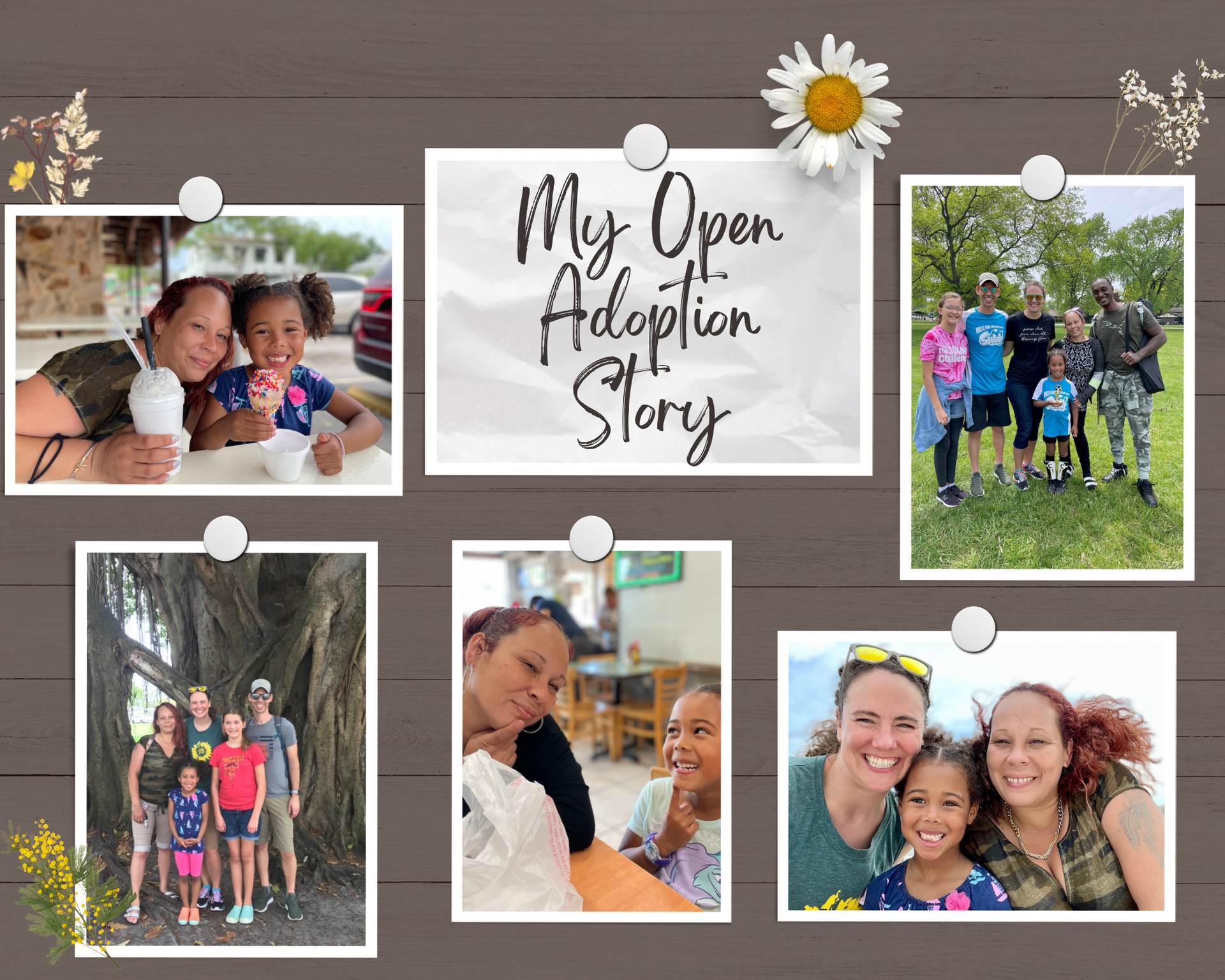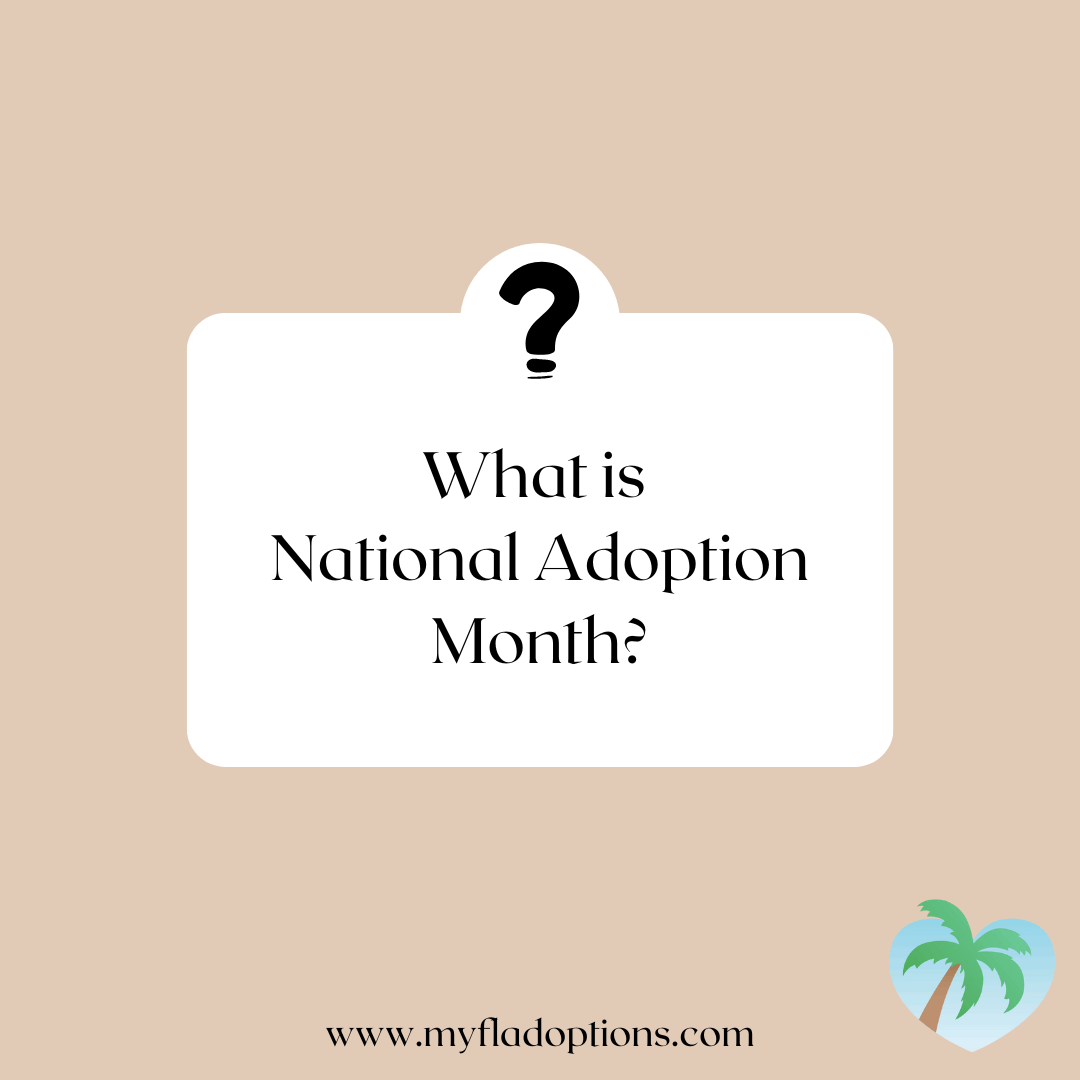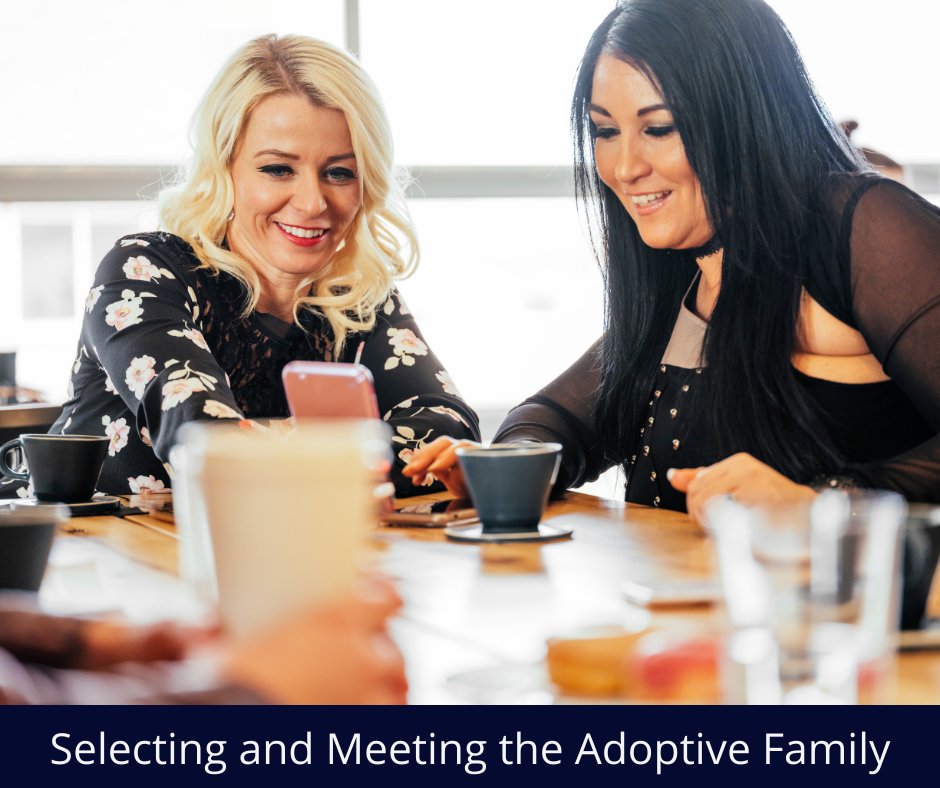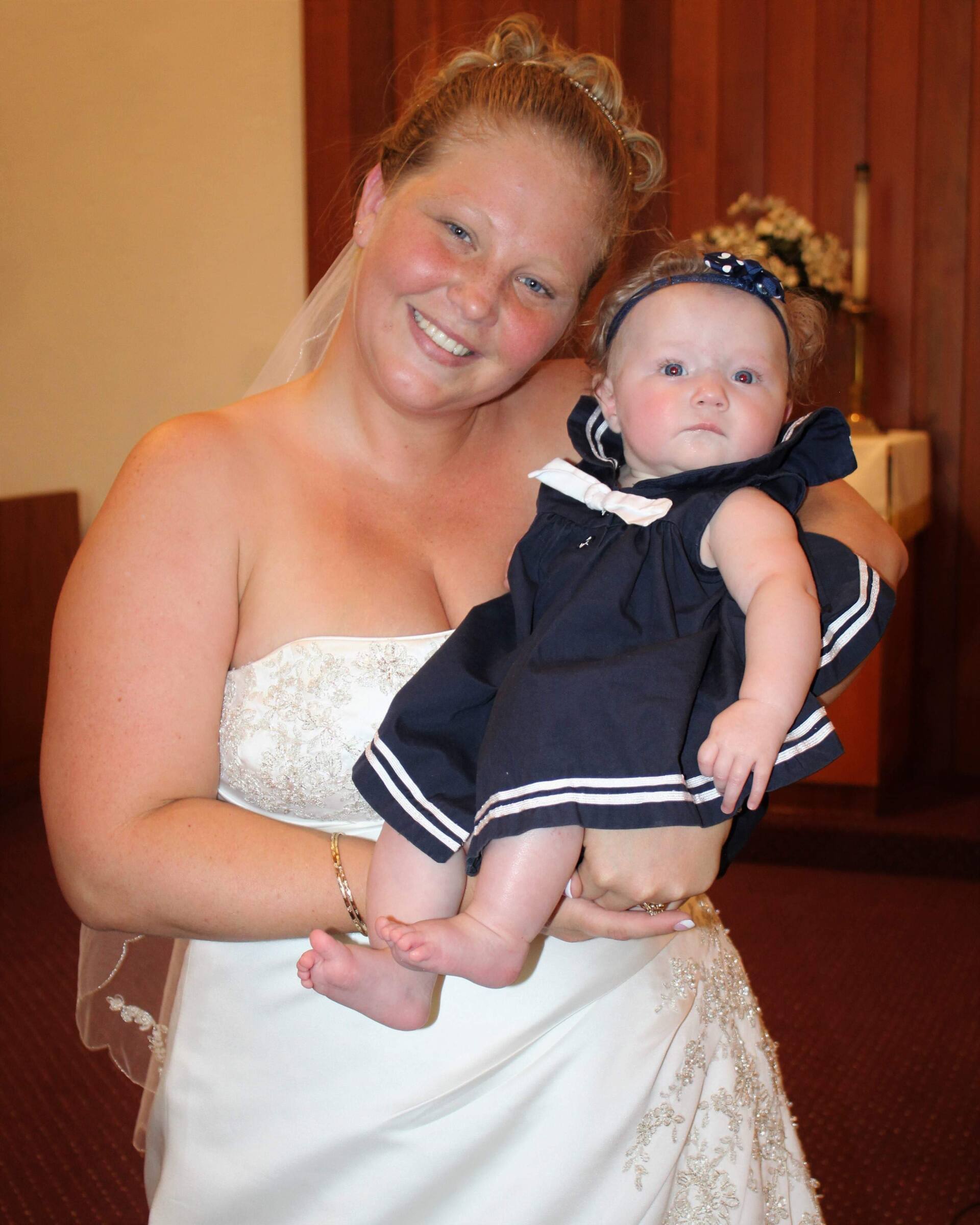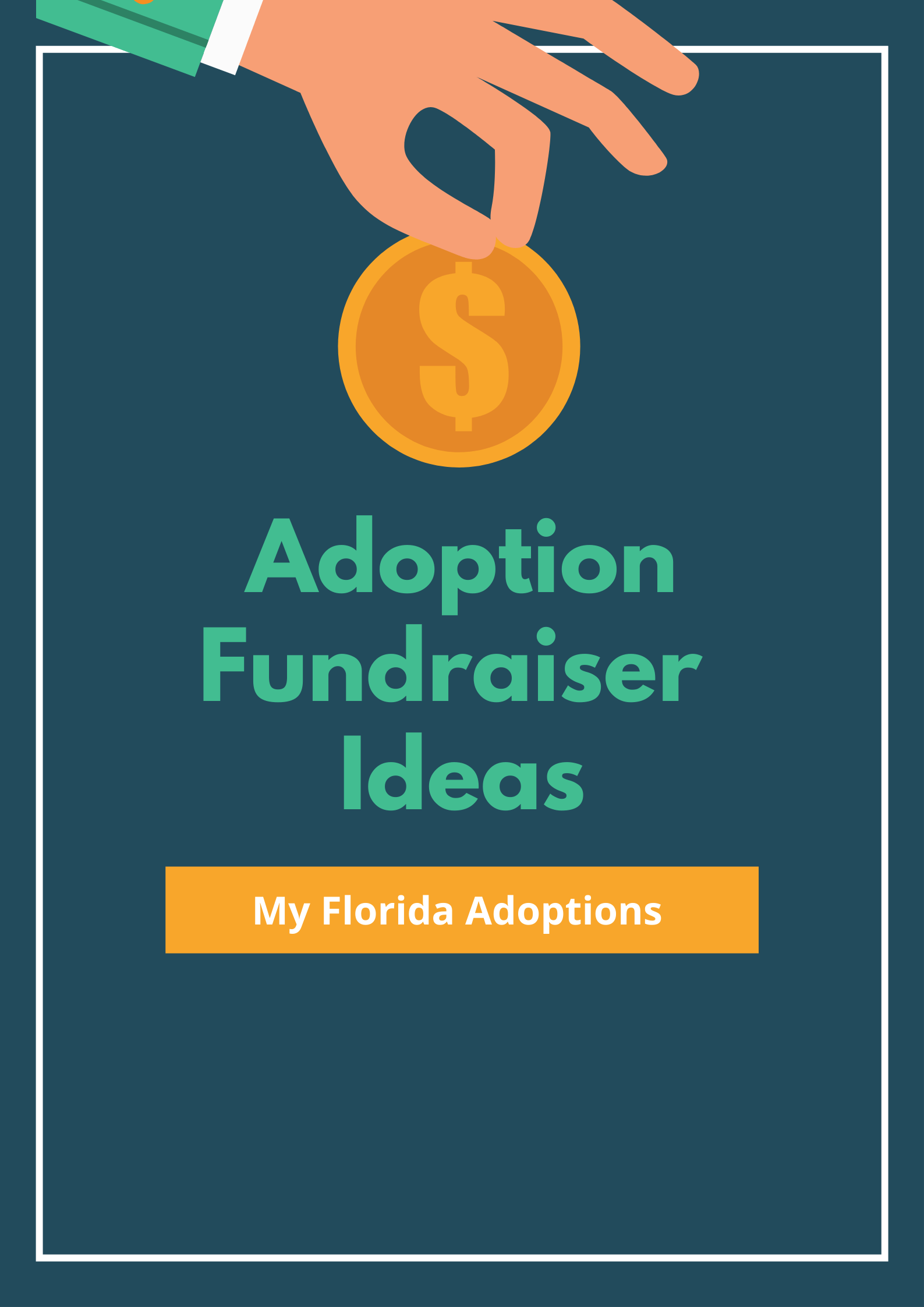Call or Text Us! (727) 233-3457
Blog Layout

Who Is A Birth Mother?
When we discuss adoption, many
blogs and articles
will cover what is expected of adoptive parents or tips for raising an adopted child. These are certainly important topics, but they often miss the heart of a very important aspect of the adoption triad: the birth mother. Birth mothers are an incredibly significant part of a child’s life story in both open and closed adoptions. However, we often don’t know much about who a birth mother is or what she means to the child that you might be raising.
Who is a
birth mother ? Let’s take a few minutes today to dispel any myths that you might believe about who this important woman is and how she relates to your family.
Who is a Birth Mother?
A birth mother is any woman that has given birth to a child and placed that child with another family for adoption. She might have placed them for adoption directly at the hospital or waited until they were much older to make an adoption plan. No matter how old the child was at the time of placement, it is important to remember that a birth mother is still an incredibly important part of a child’s story. After all, she was the one who ultimately gave them life from the very beginning.
There is a common myth that all birth mothers are young women, usually still in high school or college. While it is true that many young women choose to make an adoption plan and become a birth mother at this age, many birth mothers are actually older women. There is no specific age range or demographic where all birth mothers tend to fit. She could be your next door neighbor, your doctor, or the woman who hands you your bags at the grocery checkout line.
Why Does a Birth Mother “Give Up” Her Child?
First and foremost, we need to remember that a birth mother does not simply give up her child. She makes a painful decision to place her child for adoption with another family. It isn’t a matter of whether or not she wants the child. All birth mothers love and adore their children, but they know and understand that they are not in the best position to raise a child at this time.
A
birth mother
might place her child for adoption for any number of reasons. She might be too young and feel that she has too much work ahead of her to focus on raising a child at this moment. There could be too many things vying for her attention in the coming years for her to have enough time and energy left to take care of her child.
Other birth mothers might place a child for adoption because of religious reasons. They might be forbidden to have a child out of wedlock, for example. Without placing the child for adoption, they will face excommunication from their church and family members.
Of course, some birth mothers could have a need to place a child for adoption because of harsher circumstances. They might be in an abusive relationship with very little way out, and adoption may be the only option to protect the child from a lifetime of abuse. She could struggle with a substance abuse disorder or a mental illness that renders her unable to care for the child.
No matter what the reason for placing a child for adoption, it is clear that a birth mother is not simply “giving up” her child. She has put a great deal of thought into what is best for her and what is best for the child before she forms an adoption plan.
What Role Does a Birth Mother Play in Adoption?
Understanding the role that a birth mother plays in adoption can be a tricky endeavor because it is so unique. This often depends on the plan made between the
adoptive family
and the birth family prior to the placement of the child. It is referred to as the openness of the adoption.
A closed adoption means that the birth mother will play no role in the adoption after the final placement. She may not see or speak to the child once he or she is placed with the adoptive family. This can be a great struggle for her because she does love the child immensely, but she knows that she is ultimately doing what is best for the child. However, the child is likely to grow up with questions about the birth mother that can’t be answered in a closed adoption.
An open adoption gives the birth mother an opportunity to be a part of the child’s life and answer their questions as they get older. She may be allowed to visit the child on a regular basis or the adoptive parents might allow phone calls, letters, and pictures to be sent back on forth on a scheduled basis. Open adoptions can take on a number of different levels, but they all allow the birth mother to play an important role in the life of her child.
Many adoptive parents hesitate to consider an open adoption because they worry that the birth mother might attempt to take the child back. However, they usually don’t have to fear that this is the case. A birth mother is ultimately a woman who has her child’s best interests in mind. She made the courageous decision to place the child with your
family
and she isn’t likely to interfere with the placement years down the road.
A birth mother is an amazing woman who makes a courageous decision to give her child the best possible life. Understanding who she is and where she comes from can give you a greater understanding of your child’s story. She is the woman who gave life to your child and wants the very best for them. It’s important to remember to honor her role in the adoption triad when you speak with others and with your child.
Spread the love
Trevor Shirk • Apr 17, 2020

By Tammy Holcombe
•
28 Oct, 2021
Adoption is a beautiful thing. We have an adoptive family that is overjoyed as their dreams have finally come true and they are able to be parents for the first time. Then there is a brave birth mother who has put the needs of her baby before anything else and because of her love for this child, she makes a mature and selfless decision to place her baby for adoption. While choosing to place your baby for adoption is a brave decision, there is a grieving process that accompanies it. Some birth mothers expect it and know this will be hard and emotional and others may not acknowledge the grief. In 1969, a Swiss Psychiatrist, Elisabeth Kubler-Ross, introduced five stages of grief that people will go through when they experience a loss or change of some kind. During our lifetime, we are going to experience grief many times. It may be the loss of a loved one who dies from cancer. It could be a divorce or broken relationship. It could be a job change or a move. It may be a miscarriage or a still born. The list is endless. Grief is what we go through when we experience a loss or change. Birth mothers who place their baby for adoption also will experience grief. Let's look at the five stages of grief that Dr. Kubler- Ross introduced: Denial - Denial is the initial stage of grief that helps us cope with loss or change. It is a time of avoidance. We avoid the reality of the situation as it may be too overwhelming. It is actually helpful to experience denial as it gives you time to pace our grief. We could not handle the impact of loss all at once; therefore, denial allows us time to avoid it and deny the reality of it until we are ready to process it. The important thing is to be sure you do not get stuck in denial. The best way to process grief is to feel it and express it and tell your story. If you stay in denial and deny or avoid the feelings, you will not be able to process it. The pain will be stuffed inside and at some point it will come forward at a later time of life. Anger- Anger is a common emotion to have once you are out of denial and into reality. This is when one may say “It is not fair” or “Why me”. It is when one needs to blame someone else for their grief. It is important to feel the anger and express it or say it out loud. Eventually the anger will dissipate. For a birth mother, she may be angry at the birth father who left her in this position. She may be angry at her mother who insisted she place for adoption or who withdrew her support from her. She may be angry at the adoption agency that made it sound like rainbows and unicorns and didn’t forewarn her of this grieving process. She may be angry at the adoptive family who are holding and cuddling the baby that she should be holding and cuddling. She may be angry at herself for not being in a better place financially or emotionally. Depression- Depression and sadness is the most commonly accepted stage of grief. It is the emptiness we feel when we are living in reality and realize the person or situation we had is gone or over. It is a time where you may want to isolate and withdraw or stay in bed. This could be accompanied with hopelessness and/or suicidal thoughts. It is important not to get stuck in this stage. Accept therapy and support, even when you do not want to. I had a birth mother say to me once, I don’t want to talk to a therapist and move on, I want my baby back. She was feeling so hopeless. Within three days, she was doing so much better. It was still hard and painful, but she was not completely hopeless. She described it as I am now rational again. She was feeling normal grief. The hard thing for a birth mother is there is a normal grieving process after placing your baby for adoption and then there are hormonal changes going on in your body at the same time. It is like a double whammy. When a birth mother is feeling depression it causes her to question if she did the right thing and if she did, why does it hurt so bad. Bargaining- Bargaining is a stage where we are looking for a chance to stop the grief. You make yourself believe you can avoid the grief with a type of negotiation. Bargaining is many times accompanied by guilt. It is the attempt to get things back to the way it was prior to the loss or change. A birth mother may bargain with God and say, “God, if you will let me get my baby back, I will live right from here on out.” Or negotiating with the adoptive family. An example may be, I can’t do this unless I know I can visit her twice or three times a year. Acceptance- In this stage, one comes to terms with their new reality. The emotions begin to stabilize. You have good days and bad days. But you are moving and growing into your new reality and you have a sense that you will be okay. It is important to let people support you during your time of grief. Counseling and Birth Parent Support Groups are available to birth mothers. Grief is a process and everyone processes it differently. It is important to express your feelings and tell your story to help you process your grief. It is so interesting that when an employer gives you bereavement time off, it is usually three days paid time off. I think that the most intense time is the first three days. You are bouncing from stage to stage and feeling all kinds of emotions. It does not end there; however, you may start to get some breaks from the grief.. Then there will be something that triggers your grief like a movie or a smell and you will experience some of the emotions. But then you will get a break again until the next trigger. Grief is a process and a journey. There is no right or wrong way to grieve. We are all individuals and will grieve at our own pace and in our own way. Don’t judge yourself or let anyone judge you during this time. Be kind to yourself. Find a safe place to tell your story. Here at My Florida Adoptions, counseling is made available to you at any time during your adoption plan and your grieving process. Remember we have offices in Tampa, Port Richey, Orlando and Clearwater. It would be our pleasure to support you throughout your adoption plan.
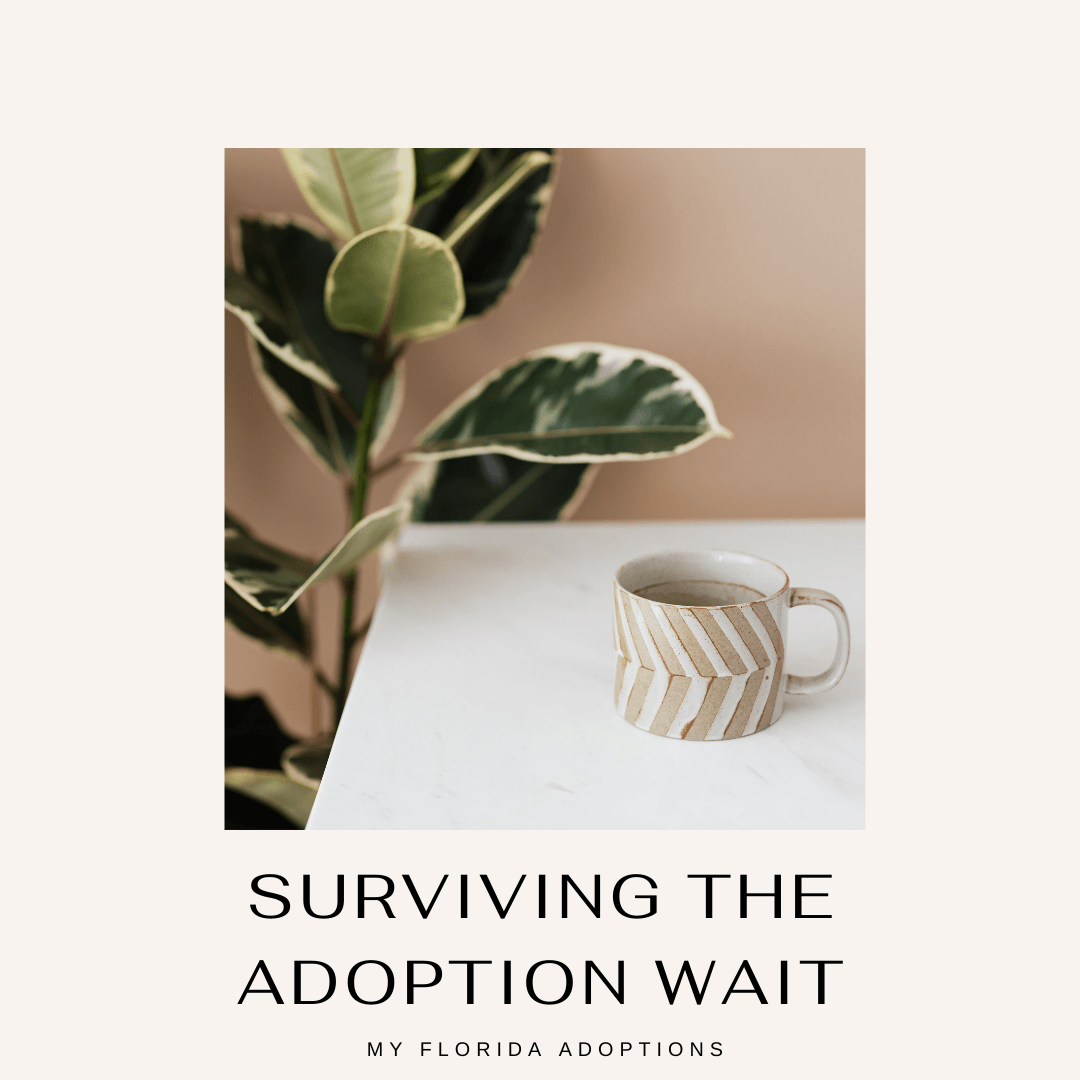
By Leah Wild
•
10 Feb, 2021
You have selected your agency, attorney or consultant of choice. You survived the Home Study process. You spent hours creating your Profile Book. You are officially “APPROVED to adopt”, so what now? The past few months have been leading up to this moment and you were feverishly filling out forms, scheduling interviews, doctor’s appointments, and pulling all of your creativity into an 8x11 book, and now you are told to simply, “wait.” Excuse me? You have been in fact “waiting” to add a child to your family for what seems like forever already and “now” is when the waiting starts? The true and dreadful answer to that question is “Yes.” However, this time of waiting does not have to be filled with anxiety or checking each day off of that calendar in your kitchen. Here are my “Social Worker Approved” tips for surviving the wait! 1. Realistically prepare for your new addition. DO NOT, and I repeat DO NOT buy clothes, diapers, bottles, specific toys, etc. as that can make the wait seem even more excruciating. Instead, start clearing out that extra bedroom, pick out a gender-neutral wall color (unless you are adopting a child of a specific gender) and paint the walls, pick out a crib or bed. Start looking on Pinterest for different decorating ideas for when the time comes. These are simple ways to prepare, while not adding to your anxiety of waiting. A fallacy of adopting a child is that the baby or child’s room has to be completely done. I always suggest to families to wait and decorate the room once the baby or child is in your home. You will be able to make the room specific to your baby or child, which makes the process much more fun! 2. Work on household projects. Take this time to update that bathroom you felt you never had time for before. Start that garden in your backyard, knock down that wall, or clean out that garage. This is the perfect time to keep busy, while feeling accomplished with projects here and there. 3. Start an adoption journal. Write about this amazing process you have begun. Share your feelings about your hopes, desires, and dreams for your future child. Share your fears about the unexpected and the struggle of waiting. This can be very therapeutic and great to read through again years later, even with your child one day. 4. Start a blog or vlog…if you are into that sort of thing. This can be a great outlet and way for your family and friends to support you throughout your adoption journey. 5. Continue your adoption education. Read books, blogs, etc. about discussing adoption with your child, adoption resources for families, books for children on adoption, and so on. No one will ever know everything there is to know about adoption, so continue your education as you prepare! 6. “Date” your spouse (if applicable). No matter how long you have been waiting and preparing to add a child to your family, your lives are about to change…even if you have children already! Use this time to strengthen your relationship as a couple. Go on dates, a weekend getaway or that cruise you have always wanted to go on. Have no money left after your adoption savings…have a date night in and binge watch some Netflix. If you are adopting as a single parent, then use this time to take that one trip, visit with out of state friends or family, etc. Take time for what is important as you wait! The wait is just another part of your journey to adopt a child. You will look back on this wait one day and think it was completely worth it…trust me, you will! Do you have any tips for families “surviving the wait?” If so, we would love to hear them!
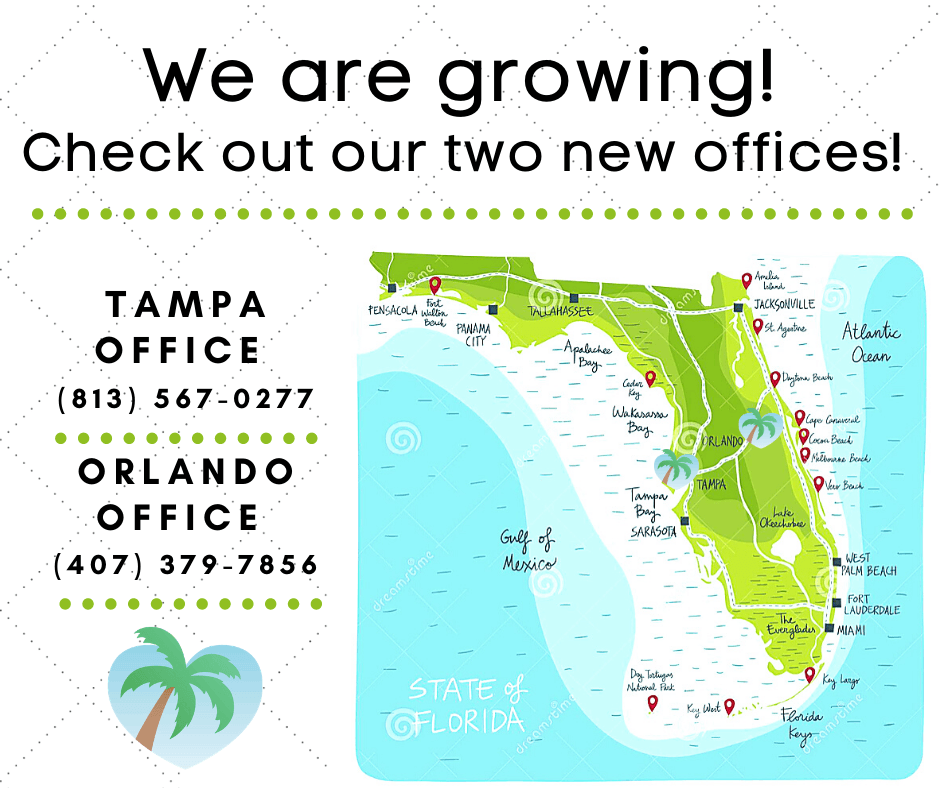
By Tammy Holcombe
•
14 Aug, 2020
We are excited to share that My Florida Adoptions has opened two new offices-Tampa and Orlando-to better serve our clients! Our main office is in Clearwater. Let us know how we can serve you in these areas and all other parts of Florida as well. We are happy to travel to you, no matter where you are. If you are an expectant mother wanting to make an adoption plan or wanting to discuss your options, we are happy to meet with you at any time. If you a pre-adoptive family who needs a home study to start your adoption journey or if you would like to discuss the adoption process, feel free to reach out to us. We are here to serve you. Sincerely, Tammy, Leah, Susan and Tina
NAVIGATION
STAY CONNECTED
Every month, we reach thousands of others like you who have an interest in adoption. Stay connected with us on the platforms below!
GET IN TOUCH
My Florida Adoptions Clearwater
My Florida Adoptions Tampa
550 N. Reo Street, Suite 300, Office 19, Tampa, FL 33607
My Florida Adoptions Port Richey
© 2024 MY FLORIDA ADOPTIONS | ALL RIGHTS RESERVED.

